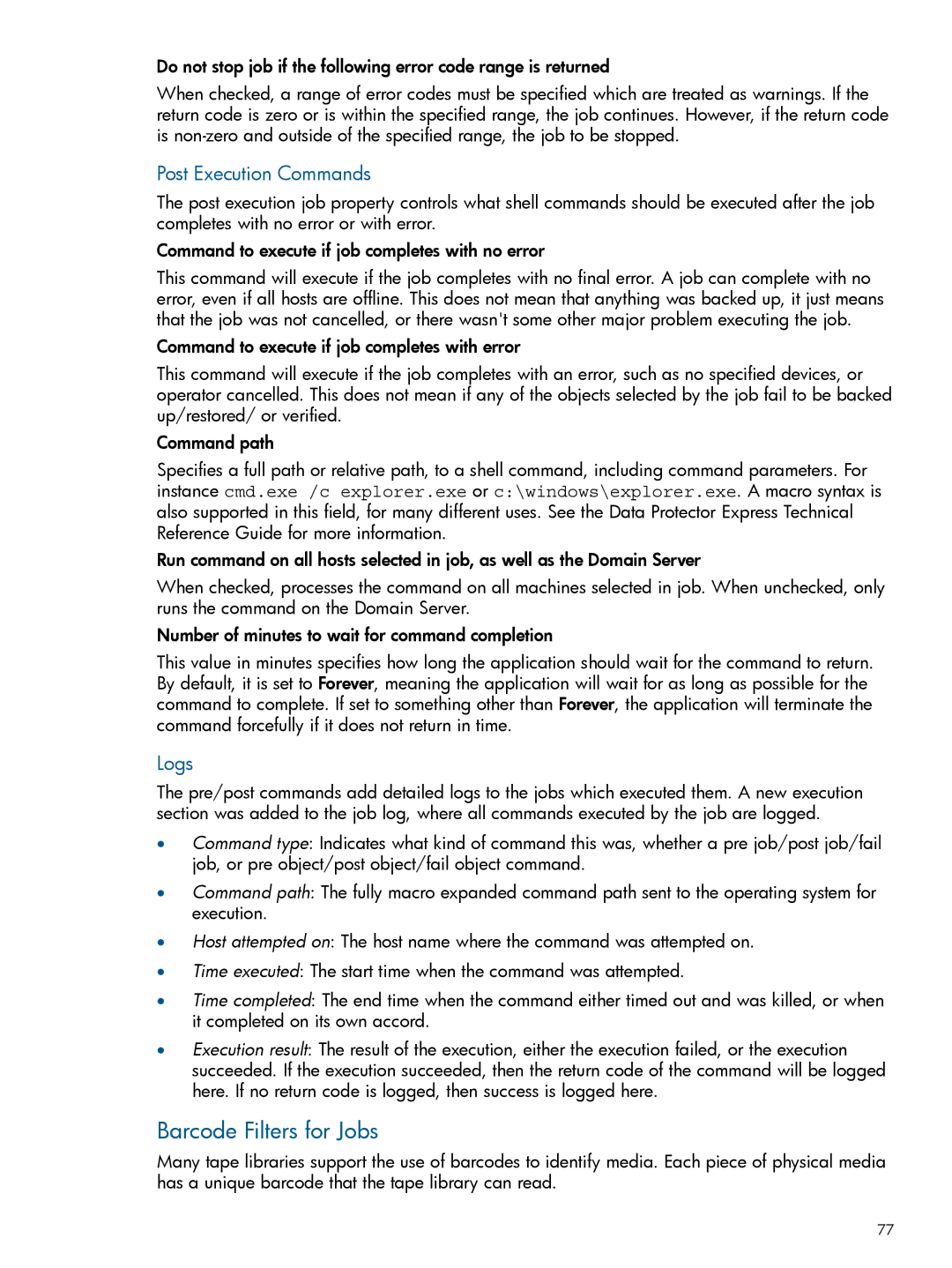Do not stop job if the following error code range is returned
When checked, a range of error codes must be specified which are treated as warnings. If the return code is zero or is within the specified range, the job continues. However, if the return code is
Post Execution Commands
The post execution job property controls what shell commands should be executed after the job completes with no error or with error.
Command to execute if job completes with no error
This command will execute if the job completes with no final error. A job can complete with no error, even if all hosts are offline. This does not mean that anything was backed up, it just means that the job was not cancelled, or there wasn't some other major problem executing the job.
Command to execute if job completes with error
This command will execute if the job completes with an error, such as no specified devices, or operator cancelled. This does not mean if any of the objects selected by the job fail to be backed up/restored/ or verified.
Command path
Specifies a full path or relative path, to a shell command, including command parameters. For instance cmd.exe /c explorer.exe or c:\windows\explorer.exe. A macro syntax is also supported in this field, for many different uses. See the Data Protector Express Technical Reference Guide for more information.
Run command on all hosts selected in job, as well as the Domain Server
When checked, processes the command on all machines selected in job. When unchecked, only runs the command on the Domain Server.
Number of minutes to wait for command completion
This value in minutes specifies how long the application should wait for the command to return. By default, it is set to Forever, meaning the application will wait for as long as possible for the command to complete. If set to something other than Forever, the application will terminate the command forcefully if it does not return in time.
Logs
The pre/post commands add detailed logs to the jobs which executed them. A new execution section was added to the job log, where all commands executed by the job are logged.
•Command type: Indicates what kind of command this was, whether a pre job/post job/fail job, or pre object/post object/fail object command.
•Command path: The fully macro expanded command path sent to the operating system for execution.
•Host attempted on: The host name where the command was attempted on.
•Time executed: The start time when the command was attempted.
•Time completed: The end time when the command either timed out and was killed, or when it completed on its own accord.
•Execution result: The result of the execution, either the execution failed, or the execution succeeded. If the execution succeeded, then the return code of the command will be logged here. If no return code is logged, then success is logged here.
Barcode Filters for Jobs
Many tape libraries support the use of barcodes to identify media. Each piece of physical media has a unique barcode that the tape library can read.
77
